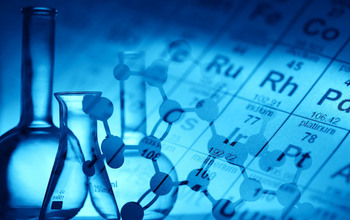NSF’s Chemistry Division awards 6 planning grants to broaden participation, form new partnerships

The new awards are designed to grow diversity and participation in the U.S. STEM workforce.
December 4, 2023
The awards will help catalyze collaborative research and education partnerships between minority-serving institutions and NSF's chemical research centers, institutes and facilities.
The U.S. National Science Foundation's Chemistry Division is investing $1.2 million in six new awards designed to grow diversity and greater participation in the U.S. STEM workforce. The two-year awards are planning grants provided by NSF's Partnerships for Research and Education in Chemistry program (PREC) which supports partnerships between minority-serving institutions and NSF's chemical research centers, institutes, and facilities located at research-intensive institutions across the U.S.
"These investments are aimed at catalyzing productive and lasting collaborations between institutions by funding the substantial planning work required to launch a large, fully-developed partnership," says NSF's Chemistry Division Director David Berkowitz. "The awardees of NSF's PREC program continue to show how these sorts of partnerships can enhance and grow the chemical research ecosystem in every part of America by increasing talent recruitment, retention and degree attainment — including among groups underrepresented in chemistry research."
The planning grants will be used by the awardee institutions to lay the groundwork necessary to submit a competitive proposal for a larger, longer-term award from the PREC program. Since its inception in 2022, the PREC program has made three such awards through two funding tracks providing up to $900,000 and $1.8 million per award, respectively. Each award supports a minority-serving institution partnering with a research-intensive institution housing one of the following: an NSF Center for Chemical Innovation, NSF's Chemistry and Material Sciences Center for Advanced Radiation Sources, NSF's Molecular Sciences Software Institute or NSF's Molecule Maker Lab Institute.
The new awardees and their partners are:
- California State University, Fullerton (in partnership with NSF’s Center for Computer Assisted Synthesis at the University of Notre Dame)
- Howard University (in partnership with NSF's Chemistry and Material Sciences Center for Advanced Radiation Sources at the University of Chicago)
- Morehouse College (in partnership with NSF’s Center for the Chemistry of Molecularly Optimized Networks at Duke University)
- University of Texas at El Paso (in partnership with NSF’s Center for Synthetic Organic Electrochemistry at the University of Utah)
- University of California, Merced (in partnership with NSF’s Center for Synthetic Organic Electrochemistry at the University of Utah)
- University of California, Merced (in partnership with NSF's Molecular Sciences Software Institute at Virginia Tech)
To learn more visit the Partnerships for Research and Education in Chemistry program webpage and the invitation to submit planning proposals.
The U.S. National Science Foundation propels the nation forward by advancing fundamental research in all fields of science and engineering. NSF supports research and people by providing facilities, instruments and funding to support their ingenuity and sustain the U.S. as a global leader in research and innovation. With a fiscal year 2023 budget of $9.5 billion, NSF funds reach all 50 states through grants to nearly 2,000 colleges, universities and institutions. Each year, NSF receives more than 40,000 competitive proposals and makes about 11,000 new awards. Those awards include support for cooperative research with industry, Arctic and Antarctic research and operations, and U.S. participation in international scientific efforts.
Connect with us online
NSF website: nsf.gov
NSF News: nsf.gov/news
For News Media: nsf.gov/news/newsroom
Statistics: nsf.gov/statistics/
Awards database: nsf.gov/awardsearch/
Follow us on social
Twitter: twitter.com/NSF
Facebook: facebook.com/US.NSF
Instagram: instagram.com/nsfgov


